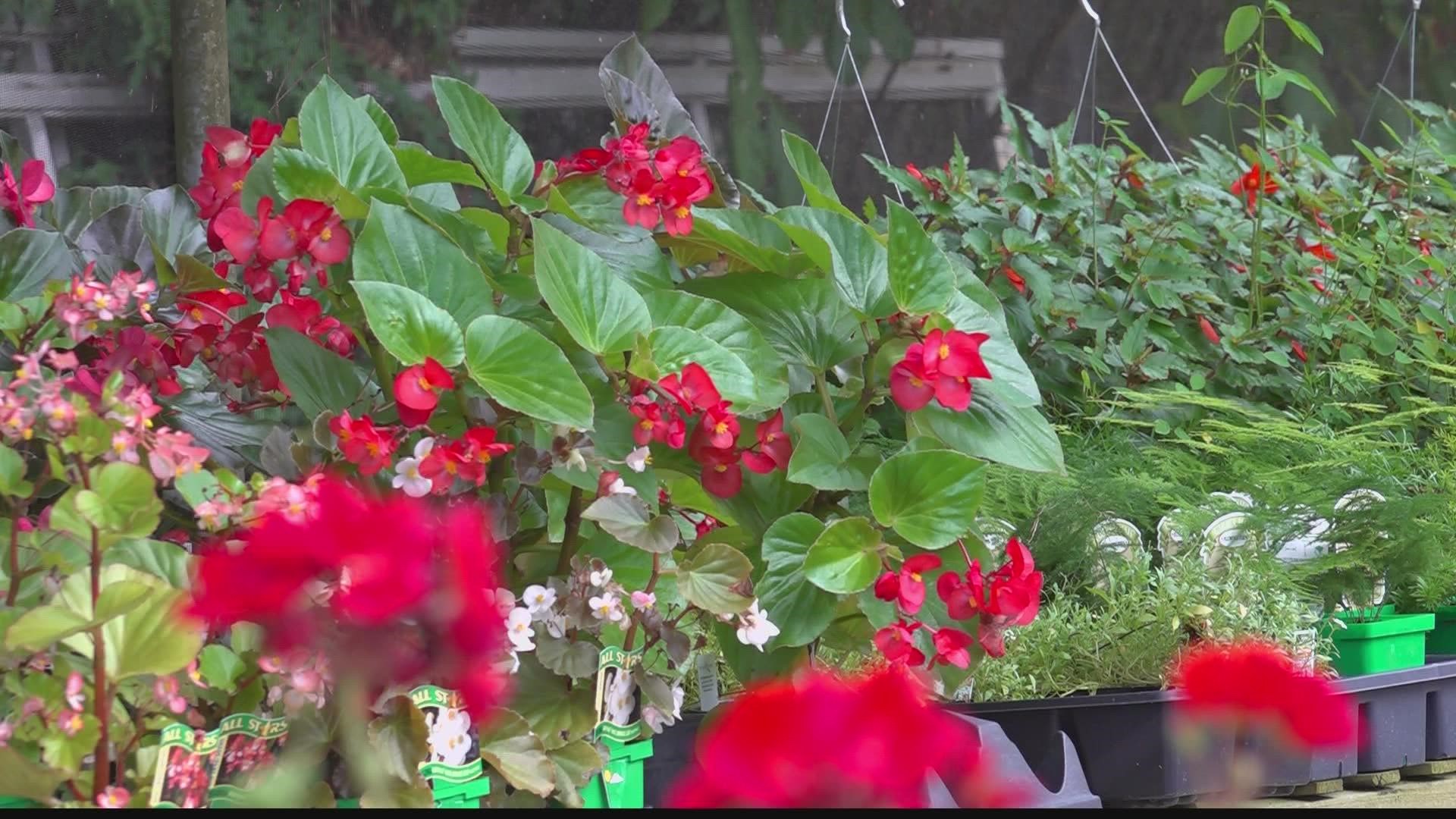MADISON, Ala. — It's summer, it's hot, and plants can wilt during this time. But Cory Brown, a garden specialist at Catbird Seat Garden Center said it really comes down to monitoring your leafy friends.
"You want to keep an eye on them, because one good indicator that the plant's in trouble is what we call, 'flagging' where the leaves hang down and you see the silvery underside," Brown said.
He shared that if a plant is 'flagging' it means it's probably thirsty. Brown said there's a special test you can do to check what the plant may need.
If you pick up the pot and it's light, it needs water. If you pick up the pot and it's heavy, it's likely been overwatered.
And if it's been overwatered, you can flip it over, lightly tap the pot without taking the plant out and flip it back over. This will allow air to surround the edges and the plant with likely recover.
"The best way to counteract it is to get up early…I consider a chicken a lazy bird. I get up earlier than they do and it's easier to work when it's cooler," Brown said.
Brown encourages that as long as they're watered early in the day, they'll be much healthier throughout the day.
And if you've been having water trouble with your lawn, Brown said there's a new technology called, 'hydrogels' and these, "are polymers which resemble jell-o. You can spray them on the lawn and they can be watered in with irrigation or rain and for the next month or two months they literally take the water out of the air and make it available by a virtue of this gel that takes the moisture out of the air and the plant roots can take the moisture off the gel."
And if it's hard for you to keep plants alive, Brown suggested succulents as a great starter plant.
"They're tough and durable, you don't have to water them very often, they're notorious for having these thick fleshy leaves and stems that store water, that way you won't have to water but once every week…the plants will hold up well as long as they get sunshine."
And when you're ready to take your gardening to the next level or have questions about the health of your plants, Brown recommends speaking with your local gardening specialists.

